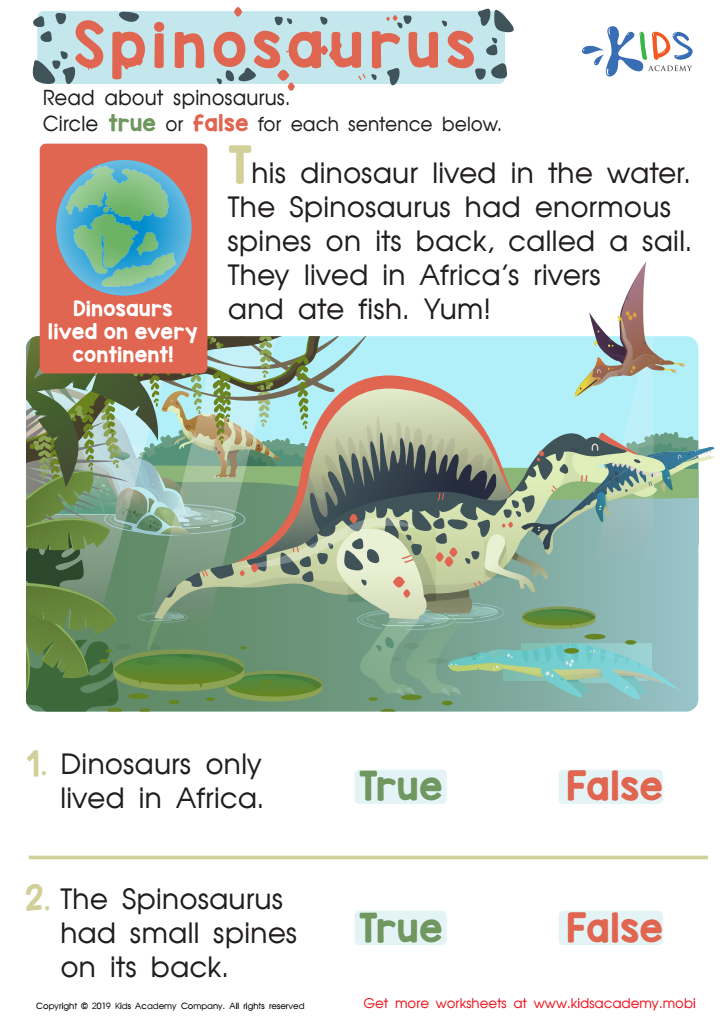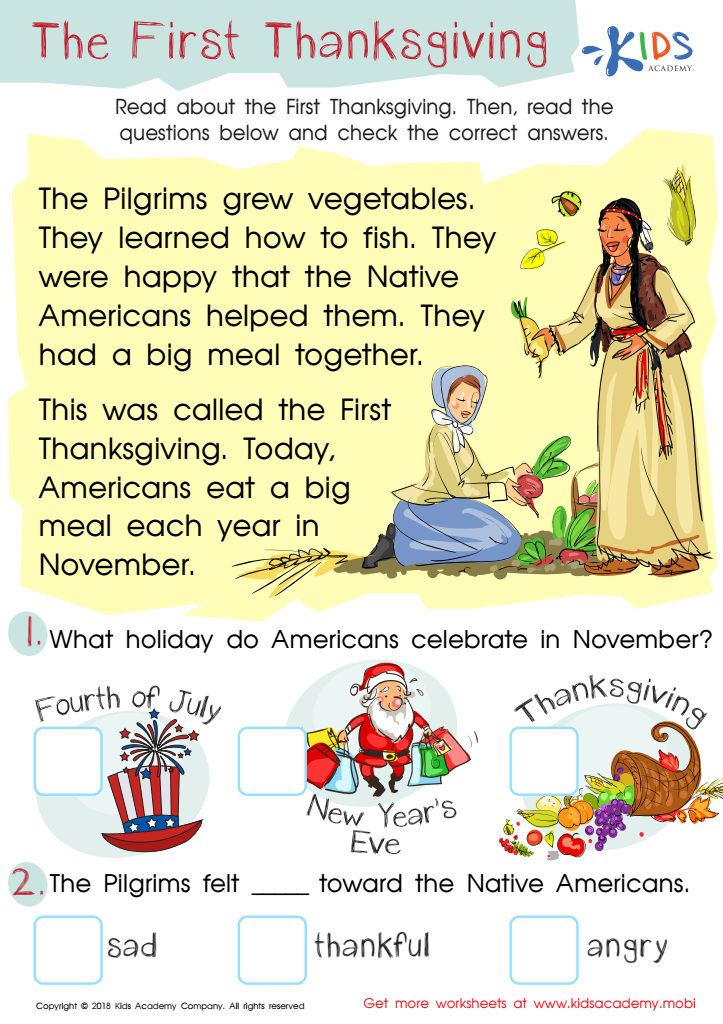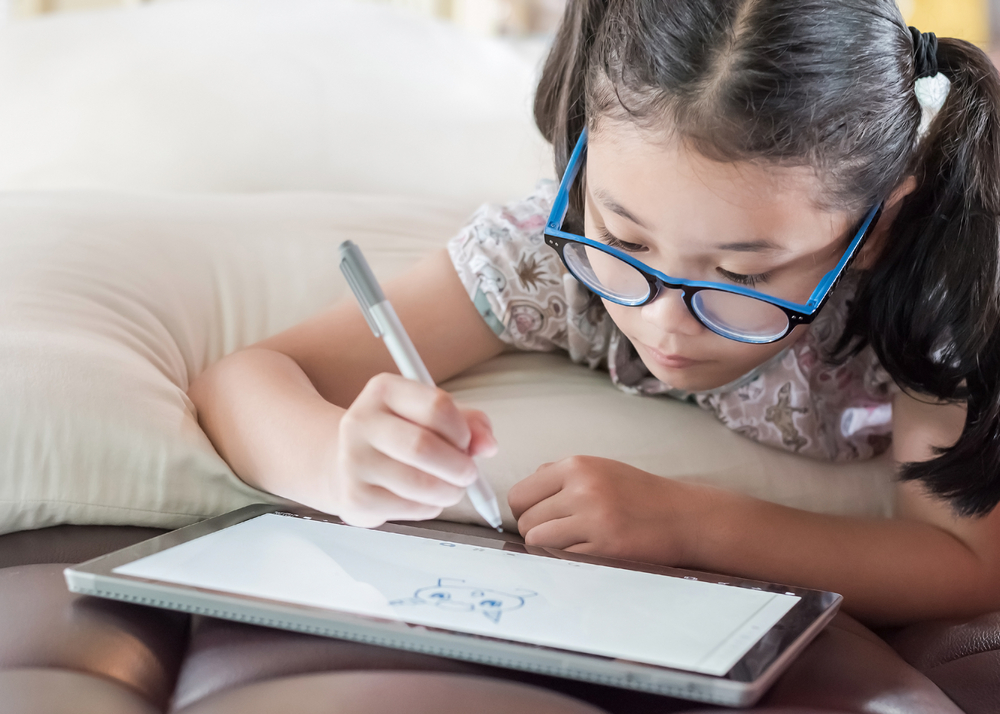Reading Non-Fiction worksheets activities for 8-Year-Olds
2 filtered results
-
From - To


Spinosaurus Assessment Worksheet


Assessment: First Thanksgiving Worksheet
Reading Non-Fiction worksheets activities offer a myriad of benefits for learners of all ages, providing a structured approach to understanding factual content. The importance of engaging with non-fiction texts cannot be overstated, as they equip individuals with the knowledge and skills necessary to navigate the world around them. These activities are designed to enhance comprehension, critical thinking, and the ability to discern fact from opinion, making them an invaluable resource in educational settings.
Firstly, Reading Non-Fiction worksheets activities foster an environment where learners can enhance their comprehension skills. Through targeted questions and activities, students are encouraged to delve deeper into the text, identifying key ideas, understanding complex concepts, and summarizing information. This practice of actively engaging with the content not only improves reading comprehension but also aids in retaining information, which is essential for lifelong learning.
Moreover, these worksheets serve as a platform for developing critical thinking skills. As learners encounter various forms of non-fiction—from historical documents to scientific reports—they are tasked with analyzing the information, comparing perspectives, and evaluating the credibility of sources. Such activities sharpen their analytical abilities, teaching them to question the information presented and form reasoned judgments based on evidence.
Additionally, Reading Non-Fiction worksheets activities play a crucial role in helping students differentiate between fact and opinion. In an era where misinformation can easily be spread, the ability to critically assess the veracity of information is more important than ever. Through structured exercises, learners are taught to identify biases, recognize the purpose of the text, and understand the importance of evidence in supporting claims.
In conclusion, Reading Non-Fiction worksheets activities are an essential tool in developing well-rounded, informed individuals. By improving comprehension, fostering critical thinking, and teaching discernment between fact and opinion, these activities prepare students not only for academic success but for their roles as informed citizens in a complex world.

 Assign to the classroom
Assign to the classroom












